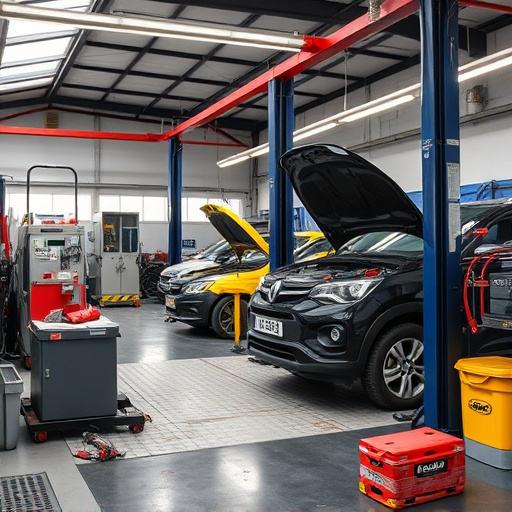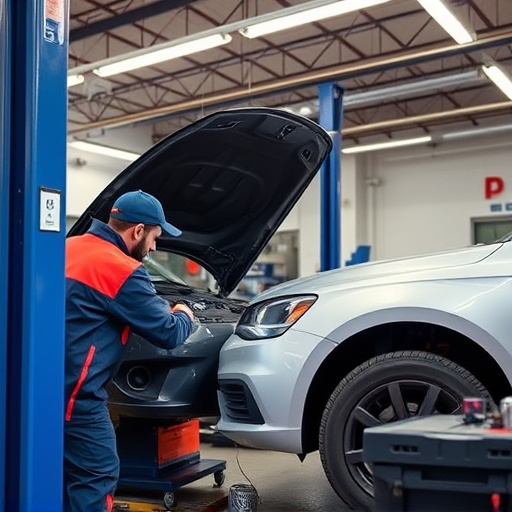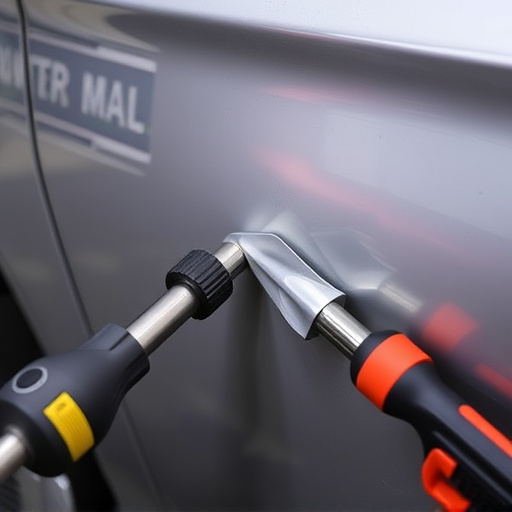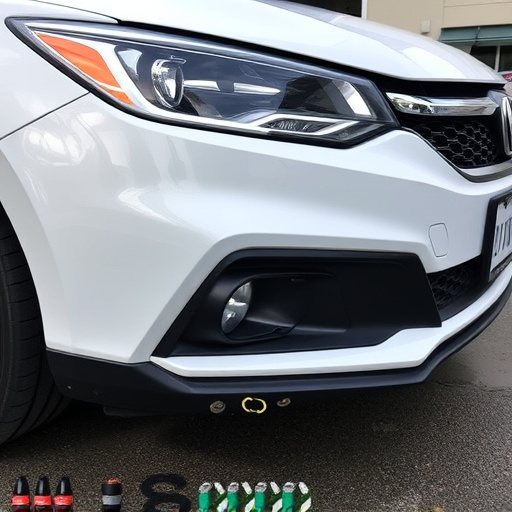Insurers prioritize fast insurance-approved repair cycle times, considering delays a quality concern. Optimizing repairs benefits both insurers and shops by streamlining claims, reducing costs, and enhancing customer satisfaction, leading to higher insurance-approved repair approvals and shop reputation. Timely service restoration boosts customer satisfaction, influencing insurance-approved repair approval rates; efficient car bodywork services foster trust, while delays harm them. Insurers value customer satisfaction as a key metric for evaluating repair shop performance.
In the competitive landscape of insurance, understanding how repair cycle times influence approval ratings is crucial. This article delves into the intricate relationship between swift, efficient repairs and enhanced insurance-approved claims processing. By examining the impact on both insurance providers and policyholders, we uncover strategies to optimize repair cycles, fostering customer satisfaction and ultimately strengthening approval ratings. Efficient repairs translate to direct benefits for insurers, while satisfied customers drive higher approval scores.
- Understanding Repair Cycle Times Impact on Insurance
- Efficient Repairs: Direct Benefits for Insurance Companies
- Customer Satisfaction and Its Link to Approval Ratings
Understanding Repair Cycle Times Impact on Insurance

Insurers closely scrutinize repair cycle times as a key indicator of service quality and reliability when assessing insurance-approved repair claims. Faster turnaround times generally translate to higher approval ratings, as it demonstrates efficient and effective auto body services. This is crucial for maintaining customer satisfaction and fostering trust in the insurance company’s process.
Prolonged repair cycles can raise red flags, suggesting potential issues with vehicle body repair quality or organization. Insurers may view lengthy delays as a sign of subpar workmanship or administrative inefficiencies, leading to lower approval ratings. Therefore, understanding and optimizing repair cycle times are essential for both insurance providers and autobody repairs businesses to ensure smooth claim processing and maintain positive relationships with policyholders.
Efficient Repairs: Direct Benefits for Insurance Companies

Efficient repairs play a pivotal role in enhancing insurance company ratings. When an auto repair shop consistently delivers swift and high-quality services, it directly benefits insurers. Faster turnaround times mean policies can be processed and approved more promptly, improving customer satisfaction and retention. This efficiency also reduces claims processing costs for insurance providers, allowing them to allocate resources more effectively.
Additionally, specialized services like bumper repairs and tire services, when executed efficiently, demonstrate a shop’s expertise and commitment to quality. Such proficiency can lead to better relationships with insurance adjusters, smoother claim settlements, and ultimately, higher approval ratings for the repair shop in the eyes of insurance companies.
Customer Satisfaction and Its Link to Approval Ratings

Customer satisfaction plays a pivotal role in shaping insurance approval ratings for repair services, especially when it comes to insurance-approved repair processes. In the event of a vehicle collision repair or car paint repair, customers expect efficient and timely services that restore their vehicles to pre-accident condition. Delays in these repair cycles can significantly impact customer satisfaction levels. A satisfied customer is more likely to approve insurance claims, knowing that their vehicle will be repaired swiftly and to a high standard, ensuring they can get back on the road without undue inconvenience.
The relationship between customer satisfaction and approval ratings becomes even more evident when considering car bodywork services. Positive experiences with repair cycle times encourage customers to recommend these services to others, fostering trust and loyalty. Conversely, lengthy or inefficient repair processes can lead to negative reviews and decreased approval rates, as customers may perceive such delays as indicative of poor service quality or a lack of professionalism. Therefore, insurance companies often view customer satisfaction as a key indicator when assessing the performance of repair shops and their ability to maintain high approval ratings.
Insurers can significantly enhance their approval ratings by understanding and optimizing repair cycle times. Efficient repairs not only benefit insurance companies through reduced claims costs but also foster customer satisfaction, leading to improved reputation and trust. By prioritizing streamlined and timely repairs, insurers can create a positive feedback loop that strengthens client relationships and ensures insurance-approved, high-quality service delivery.













